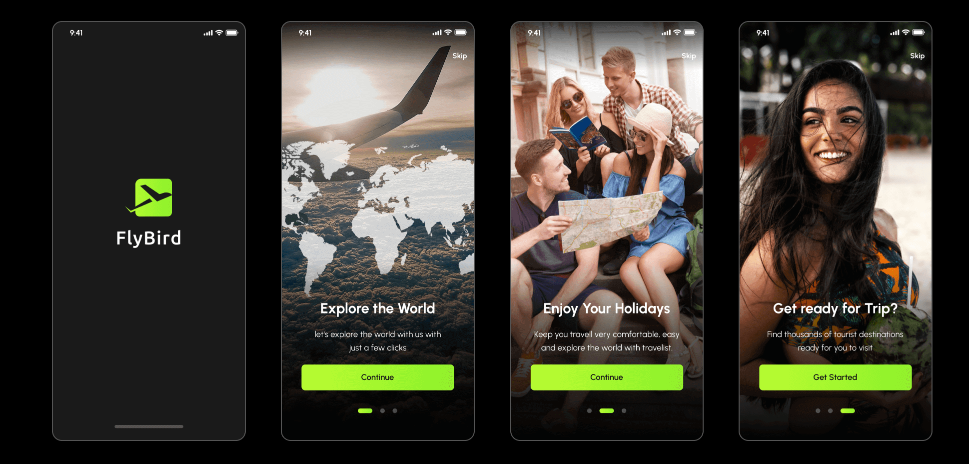Implement App Maintenance Mode with...
November 25, 2025

According to Travel Weekly, AI in travel has revolutionized how travelers plan their trips by providing real-time recommendations, predictive analysis, and seamless booking experiences.
Traveling has always been an exciting adventure, filled with the thrill of exploring new places, cultures, and experiences. However, the journey from planning a trip to actually enjoying it can often be daunting.
With so many options to choose from—destinations, flights, accommodations, and activities—travel planning can become overwhelming, time-consuming, and stressful. But what if technology could simplify this process?
Enter AI in Travel—the new-age tool revolutionizing the way we plan, book, and experience our journeys. From personalized trip recommendations and seamless booking processes to predictive analytics and real-time travel assistance, artificial intelligence is shaping the future of the travel industry in ways previously unimaginable.
The rapid integration of AI in travel has ushered in a new era of convenience and personalization. Whether it’s a travel agent helping you find the best holiday deals or an AI-powered app suggesting off-the-beaten-path adventures, AI’s presence in the travel ecosystem is undeniable. But what makes AI so effective for travel?
AI algorithms have the ability to sift through massive amounts of data—flight schedules, hotel rates, weather patterns, and even user reviews—to provide insights that help travelers make informed decisions. This ability to process and analyze data in real-time enables AI systems to recommend personalized travel plans, predict changes, and even assist with complex logistics, offering a truly enhanced travel experience.
AI algorithms are designed to learn from user preferences, behavior, and historical data. They create tailor-made recommendations for travelers, considering individual preferences such as budget, preferred destinations, activity interests, and more.
From identifying the cheapest flights to securing last-minute accommodation deals, AI eliminates the hassle of manual searches and presents the best options in seconds, enabling travelers to save time and money.
AI-powered chatbots and virtual assistants offer round-the-clock support for booking changes, itinerary updates, and travel-related queries. With instant responses, these virtual agents elevate the overall customer experience.
AI’s predictive capabilities can forecast trends like seasonal demand, price fluctuations, and best travel times. This allows travelers and businesses to make proactive decisions, avoiding last-minute disruptions.
For travel agencies, hotels, and airlines, AI optimizes operations, manages inventories, automates repetitive tasks, and ensures that resources are utilized efficiently, driving cost savings and operational excellence.

The use cases of AI in travel are diverse and continuously evolving. Here’s a closer look at some of the top AI applications currently shaping the travel and tourism industry:
AI’s biggest strength lies in its ability to personalize the travel experience. By analyzing user preferences, behavior, and historical data, AI algorithms suggest customized trip options that suit individual tastes. Whether you’re a foodie looking for the best restaurants in Paris or an adventurer seeking the most thrilling hikes in New Zealand, AI knows where to direct you.
Gone are the days of flipping through guidebooks and manually piecing together an itinerary. AI-powered travel planners can now create efficient itineraries based on travelers’ interests, budgets, and time constraints. These systems recommend the best places to visit, the optimal travel routes, and even the ideal time to explore certain locations, ensuring a hassle-free experience.
AI uses dynamic pricing models to adjust prices based on real-time factors like demand, booking patterns, and market conditions. For example, it can recommend booking a flight three weeks in advance for the lowest fare or suggest traveling on a weekday for cheaper accommodation rates. This capability enables travelers to save money and get the best deals.
With the help of predictive analytics, AI tools can forecast trends and identify opportunities, helping businesses and travelers make data-driven decisions. For instance, AI can predict which destinations will be popular in the coming months, which helps travel agencies offer curated packages and anticipate traveler needs.
AI-powered chatbots are transforming customer support in the travel industry. Available 24/7, these virtual agents can assist with booking queries, provide real-time updates, and handle common travel issues like flight cancellations or lost baggage. Their ability to engage in natural language conversations makes them an indispensable tool for enhancing customer service.
Navigating foreign lands often comes with the challenge of language barriers. AI-powered language translation tools make it easier for travelers to communicate with locals, order food, or ask for directions. Whether it’s using an app to translate a menu or an AI device that converts spoken words in real-time, these tools bridge language gaps and create a smoother travel experience.
AI is also making strides in ensuring travel safety. Predictive maintenance tools use machine learning to analyze data from aircraft sensors and predict potential issues before they escalate. This proactive approach to maintenance minimizes downtime, reduces costs, and enhances passenger safety.
AI systems are increasingly being used to detect and prevent fraud in travel bookings. By analyzing transaction patterns and identifying anomalies, AI can flag suspicious activities and prevent fraudulent bookings, protecting both travelers and service providers.
Travel companies can leverage AI to identify and target specific customer segments with personalized promotions and offers. This not only increases the chances of conversions but also boosts customer engagement and satisfaction.
The future of AI in travel looks promising, with emerging technologies and innovative applications set to further enhance the travel experience. Here are some trends to watch out for:
Voice-Activated Travel Assistants: Voice-enabled AI assistants will become more sophisticated, allowing travelers to book flights, find accommodations, and explore destinations through simple voice commands.
Augmented Reality (AR) and Virtual Reality (VR) Experiences: AI will combine with AR/VR technologies to offer immersive travel experiences. Travelers can explore destinations, hotels, or activities virtually before making a decision.
Sustainable Travel Planning: AI will play a key role in promoting sustainable tourism by suggesting eco-friendly travel options and routes that minimize carbon footprints.
As the travel industry continues to embrace digital transformation, AI will remain at the forefront of innovation, driving changes that benefit both travelers and businesses. From personalized recommendations to real-time travel assistance, AI is revolutionizing the way we experience the world.
If you’re a travel business looking to leverage the power of AI, Travel App Development is a strategic move to stay competitive in this dynamic industry.
Inexture Solutions offers cutting-edge AI development services tailored to your unique needs. Explore how our AI solutions can elevate your travel business and create memorable experiences for your customers. Connect with us today and embark on a journey of innovation and success!